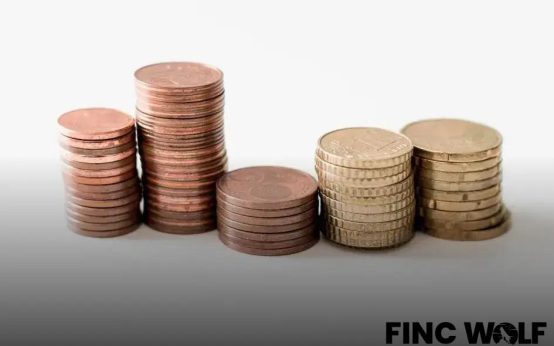When considering Renting vs. Buying a Home in 2025, it’s crucial to explore current market trends and personal circumstances. Discover the benefits and drawbacks of both options to make an informed decision. From financial implications to lifestyle impacts, this discussion will help you find the best path for your future. Let’s dive into the intricacies of homeownership versus renting and how they may play out this year.
Pros and Cons of Renting in 2025
Pros of Renting in 2025:
- Flexibility: Renting allows individuals to easily relocate if needed, adapting to changes in job location or personal circumstances without the hassle of selling a property.
- Lower Upfront Costs: Without the need for a down payment, renters can minimize initial expenses, making it an attractive option for those with limited savings.
- Maintenance-Free Living: Renters benefit from landlords handling repairs and maintenance, reducing both time and cost commitments.
- Access to Amenities: Many rental properties offer amenities such as pools, gyms, and community spaces, which can enhance lifestyle without additional costs.
Cons of Renting in 2025:
- Limited Equity Growth: Renters do not build equity over time, missing out on potential long-term financial growth that comes with homeownership.
- Rental Increases: Rent prices can rise annually, impacting financial stability and potentially costing more in the long run compared to fixed mortgage rates.
- Lack of Personalization: Many rental agreements restrict property modifications, limiting personalization options and customization to make a space truly your own.
- Stability Concerns: Renters may face uncertainty regarding lease renewals, and potential eviction situations can create instability in living arrangements.
Advantages of Buying a Home Now

In today’s housing landscape, purchasing a home offers numerous benefits worth considering.
Equity Building
One of the primary advantages of buying a home is the ability to build equity over time. Each mortgage payment contributes towards owning an asset that can grow in value. This means that as you pay down your mortgage, you are also investing in an asset that can appreciate, which renting does not offer. Stable Housing Costs Owning a home usually offers more predictable monthly expenses. While rents can increase annually, a fixed-rate mortgage ensures steady payments, protecting against market fluctuations.
Tax Benefits
Homeownership also offers tax advantages, such as deductions for mortgage interest and property taxes, which can reduce your overall tax burden. These financial incentives can make owning more appealing financially than renting. Customization Freedom Purchasing a house provides the freedom to customize and renovate according to your needs and tastes without needing landlord approval, creating a truly personal living space.
Community and Stability
Owning a home often fosters a sense of community and stability. Homeowners tend to stay longer in one place, allowing you to build connections and participate in neighborhood activities. This sense of belonging can enhance overall life satisfaction.
Financial Considerations: Rent vs. Mortgage
When deciding between renting and buying a home in 2025, one crucial aspect to consider is the financial impact. It can be a tough decision as both renting and buying have significant financial implications.
Monthly Payments
Monthly expenses are a primary factor. Renting usually involves a fixed monthly rent which could be subject to annual increases. Meanwhile, a mortgage payment might fluctuate if you have a variable interest rate, though fixed-rate mortgages offer more predictability.
Initial Costs
Buying a home involves larger upfront costs, such as a down payment, closing costs, and inspection fees. Renting typically requires a security deposit and first month’s rent, which are generally lower.
Long-term Investment
Mortgage payments contribute to home equity, suggesting potential for a return on investment if the property’s value increases. Renting does not yield direct financial returns, but can still suit short-term plans or those who prioritize mobility.
Tax Benefits
Homeowners may enjoy tax deductions on mortgage interest and property taxes, reducing their taxable income. Renters do not benefit from these deductions, though local incentives may apply in certain regions.
Maintenance and Fees
Ownership entails responsibility for repairs and maintenance, adding to financial considerations. Renters often rely on landlords for these expenses, possibly incurring fewer out-of-pocket costs.
Opportunity Cost
The opportunity cost of money tied up in property should be weighed against other investments. Renting could free up capital for investment opportunities offering higher returns.
Market Predictions for 2025 Housing

Analyzing the housing market for 2025 offers insights into the ongoing changes and challenges faced by renters and buyers. Demographic shifts are expected to play a major role. As millennials and Gen Z continue to seek property ownership, there could be a greater demand for affordable housing. However, with inflationary pressures and fluctuating interest rates, the cost of purchasing a home may rise.
Urban vs. suburban trends also influence market dynamics. The remote work trend, which gained momentum over recent years, may lead to greater demand for suburban homes with more space and amenities. Meanwhile, city living could appeal to those valuing convenience and proximity to urban attractions.
The prediction of housing inventory is vital. A shortage of available homes could inflate prices, impacting affordability for first-time buyers. Government policies such as tax incentives and subsidies could be pivotal in addressing these challenges.
Technological advancements
have an increasing influence on real estate markets. The adoption of smart home technology and virtual viewing methods could reshape buyer expectations and streamline purchasing processes.
Considering investment, the housing market in 2025 presents both risks and opportunities. As seen, cyclical market trends may benefit those who understand timing and economic factors.
Understanding these predictions helps inform decisions in the ongoing debate over renting vs. buying, guiding individuals towards smart financial choices in the fluctuating housing landscape.
Lifestyle Choices: Flexibility vs. Stability
When considering lifestyle choices in the context of renting vs. buying a home, two main factors come into play: flexibility and stability. These options have different impacts on your life, career possibilities, and even personal development.
Renting offers flexibility that can be very appealing, especially if you prioritize experiencing different environments or shifting career opportunities. Renting allows you the freedom to move easily from one place to another without the long-term commitment that comes with owning a home. This can be particularly beneficial for young professionals or those who frequently change jobs and want to live closer to work or explore living in diverse neighborhoods.
On the other hand, buying a home generally provides a sense of stability. Owning a property gives you the assurance of having a permanent place where you can invest time and resources into personalizing and improving your living environment. It often comes with a sense of community and belonging, as homeownership typically ties you to a particular area more deeply.
The decision between flexibility and stability often hinges on personal and career goals. Those who value flexibility might see renting as the better choice, allowing for easier transitions and less financial risk in volatile markets. Conversely, individuals seeking stability or planning on settling in a specific location might find homeownership more appealing.
Long-term Investment: Renting or Buying?

The decision between renting or buying a home as a long-term investment can have a profound impact on your financial future. Buying a home can potentially offer financial growth through equity appreciation over the years. When you own a property, any increase in the property’s market value directly augments your personal wealth, given that your mortgage balance reduces over time.
On the other hand, renting a property can offer essential flexibility, a significant benefit for individuals or families who anticipate relocating due to career changes or lifestyle choices. Renting might result in less financial gain, as payments contribute to the landlord’s income, not asset development for you.
Assessing Market Trends
Understanding housing market trends is crucial when choosing between renting and buying. Market conditions in 2025 will likely influence average home prices, interest rates, and rental costs. Real estate investments in stable or growing markets may provide stronger long-term returns, encouraging buying over renting.
Additionally, maintenance costs, property taxes, and homeowner association fees are significant considerations for buyers, affecting the long-term financial viability of property ownership. Renters, however, generally avoid these costs, making it easier to manage a budget without unforeseen expenses.
Financial Implications
Though initial costs for buying are higher, involving down payments and closing costs, they can be offset by eventual equity gain. Compare this to rental payments, which might initially be lower, but offer no financial return. For some, a stable investment in a property yields beneficial outcomes, while others prioritize liquidity and the absence of property maintenance responsibilities.
Choosing whether to rent or buy as an investment involves analyzing current finances, market stability predictions, and personal life goals, emphasizing how each choice aligns with long-term aspirations.





